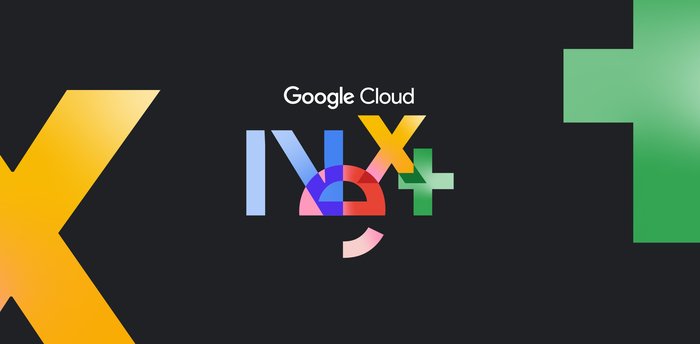In the AI era, your people, not your prompts, matter most. Here's how to empower them.

Linda Moss
Director, Google Cloud Learning Services
Especially as models become more commodified, it's training, diverse talent, and company culture that will make the most of an organization's AI.
While AI has long been in the background of your favorite applications, be it in the form of sentiment analysis, data insights, or account prioritization, its role in business is now an everyday, unavoidable thing. Just look at all the productivity features rolling out in Google Workspace as one example, or MedPalm’s ability to help research new drugs.
As awe-inspiring as these tools are, they’re nothing without the people behind the screen powering it. While worker productivity often accelerates with generative AI tools, their true potential lies in the hands and experience of the person inputting the prompts.
As the era of everyday AI begins, we strongly believe that the businesses able to invest in and capitalize on their teams’ diversity, creativity, and skill will be the ones leveraging LLMs to their fullest.
AI: always beneath the surface
Survey people on the street, and their experience with AI is that of the silent (or not-so-silent) helper in their phone or smart speakers. Some have begun to dabble with generative AI tools, but to many at best it remains a mystery, and at worst it’s causing disruption amongst industries.
Yet AI exists across almost every facet of modern-day life in countless unseen ways.
From algorithms unlocking your phone through biometric face scanning to personalized recommendations on your favorite websites, AI is everywhere. In the business world, artificial intelligence has been optimizing workplaces for years. When your CRM software notifies you of an upcoming customer renewal, it’s AI connecting the dots and bringing it to your attention. Most of us have some form of interaction with an AI-assisted workflow, whether in an algorithm or a chatbot, multiple times a day without realizing it.
AI technology is taking a more prominent role in business, automating some tasks and quietly assisting in others; one notable benefit is providing cross-functional insights often missed by siloed teams. As AI becomes integral in every part of an organization, we're rethinking how we work and how we can best support our employees as we introduce new AI technologies.
In our anecdotal experience, it takes an “always-on mindset” to get the most out of IT, and this is especially true when it comes to AI. And a more rigorous study conducted with the Boston Consulting Group came to the same conclusions. To adopt this agile way of thinking around enterprise tech, leaders are embracing a “fail-fast-learn” mentality to leverage the cloud’s ability to deploy an app, analyze data in real time, and quickly release updates if need be.
To build an effective AI-first workforce, cloud leaders are investing heavily in upskilling their employees to drive efficiencies with current and future technologies. It’s one of the reasons that leaders in cloud technology saw a 5% gain in market share and market cap versus their peers during the pandemic.
Our unparalleled opportunity
Now, with generative AI, businesses can no longer avoid the role AI plays in enhancing and improving their organization.
Whether generating code alongside developers, building bespoke sales decks, or effortlessly crafting email campaigns, generative AI elevates all aspects of a business. For instance, a recent study from MIT shows that the addition of generative AI in customer service roles is resolving support tickets 14% faster than those without intelligent assistance.
The addition of generative AI to a company can imbue organizational data and guardrails with the invaluable human ingenuity of your workforce. Using natural language processing (NLP) that allows for communication with AI tools in a conversational manner, all employees are contributing to tuning and refining the model. This not only bolsters efficiency, it also provides diverse insights that can better address customer needs, leading to improved satisfaction and loyalty.

Knowledge is key
In this era of everyday AI, all Google Workspace users have access to this robust set of generative AI tools animating roles in every industry, from education to energy. With such a dramatic transformation in how we create, collaborate, and code, proactive organizations must invest in educating and optimizing their workforce to utilize generative AI.
Workers need to understand how generative AI tools can automate tasks, expand their skill set, and approach challenges in a new way. Digital-leading CEOs are already educating themselves on the impact these technologies can have on workers throughout their companies and encouraging every one of their reports to do the same. Preparing employees for the AI-evolution of their day-to-day business routines means training them on skills that may not be in their original job descriptions. Communicating effectively with a large language model lies in recognizing the strengths and limitations of these tools and critically analyzing their outputs with human judgment and expertise.
Once they’ve understood how they can work with the large model, workers become competitive differentiators as their prompting skills improve, processes are automated, and creative ingenuity accelerates through cultural changes. In addition to technical training, organizations need to nurture an inclusive culture that values diversity of thought, life experiences, and encourages the integration of these perspectives when using AI tools.
Once they’ve understood how they can work with LLMs, workers become competitive differentiators as their prompting skills improve, processes are automated, and creative ingenuity accelerates through cultural changes.
To prepare a smooth transition for organizations, Google Cloud is offering new, no-cost training to develop generative AI knowledge and skills. These courses cover a wide range of subjects, from broad introductions to Generative AI and Large Language Models, to more technical overviews like the encoder-decoder architecture, and navigating the path to responsible AI.
Tailored to facilitate both individuals and organizations in harnessing the transformative power of AI, this program is set to stimulate efficiency, innovation, and ingenuity. Independent of your technical proficiency or organizational role, this training will lay the groundwork necessary for you to comprehend and apply generative AI effectively and responsibly.
Same tools, different output
Investing in a workplace where everyone can belong is another avenue for companies to succeed with generative AI. As employees across all industries gain access to the LLMs and their supercharging productivity, how will your organization continue to distinguish itself?
Generative AI can level the technology landscape, bridging significant skill and resource gaps between enterprise and non-enterprise organizations. Yet, even at an accelerated pace, homogeneity in thought creates homogeneous output. Incorporating broad perspectives, across demographics, cultures, genders, and worldviews can unlock unique aspects of your LLM through natural language prompting.
Enter your prompt engineers, who are often the determining factor in the performance and nature of your LLM outputs. Prompt engineering involves guiding and coaxing an LLM to leverage its billions and trillions of parameters, learned from diverse data, to generate contextually relevant outputs. Since these models lack consciousness, the entire process is driven by the thoughts, feelings, awareness, and experiences of the workers behind the prompt.

At Google, for example, we’re helping every Googler feel seen, connected, and supported to participate fully in this new frontier. In turn, they are able to channel their personal experience into the products we build, and the services we provide to connect and collaborate, for billions of unique users everyday. As the latest tool of communication, generative AI is reflective of the values, experiences, and environment of the prompter. Workplaces that foster belonging invite their employees to impart their unique perspectives, history, and understanding to unlock creative and technical innovation which resonates across demographics, markets, and communities.
As we roll out our new generative AI tools over the next few months, we are excited to see how our customers incorporate them into their workflows and what results they create. Generative AI represents a paradigm shift in how we work. Organizations with an “always-on” mindset who empower their teams with AI education and upskilling will see the most success.
The era of everyday AI allows us to rethink work and how best we can support employees in bringing their entire selves to the workplace. As we embrace this change, diversity within our workforce becomes not just an ethical imperative, but a strategic one. A diverse team, equipped with generative AI tools can bring forth a spectrum of insights, experiences, and creative solutions that would otherwise remain untapped. Google Cloud’s learning pathways offer a stepping stone into this new era, and through these courses you and your employees gain the skills and knowledge to wield these powerful tools effectively.



